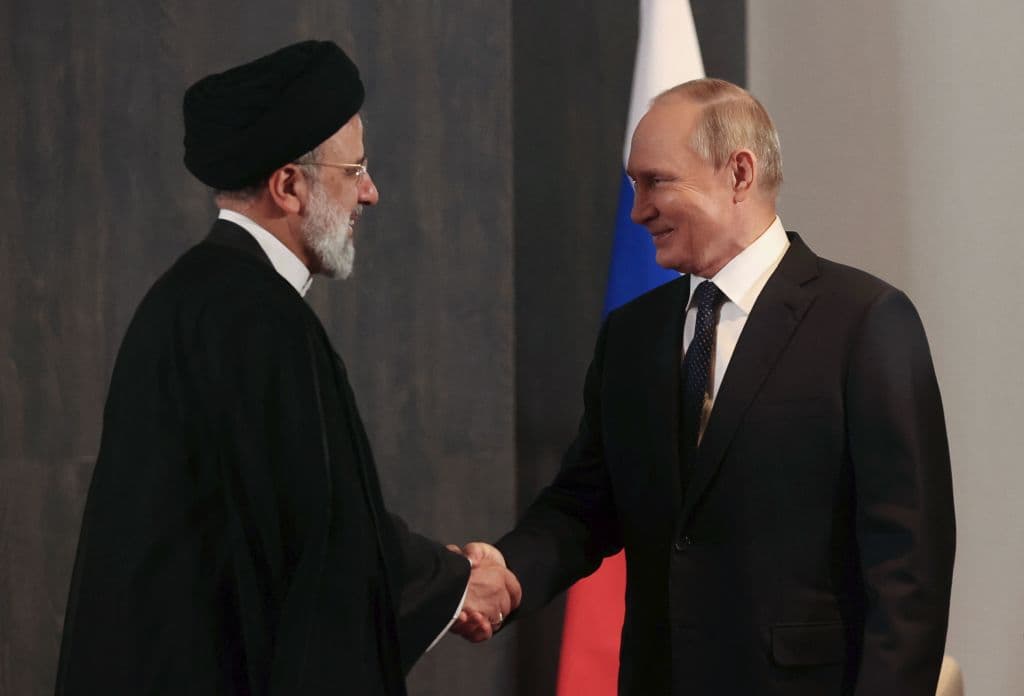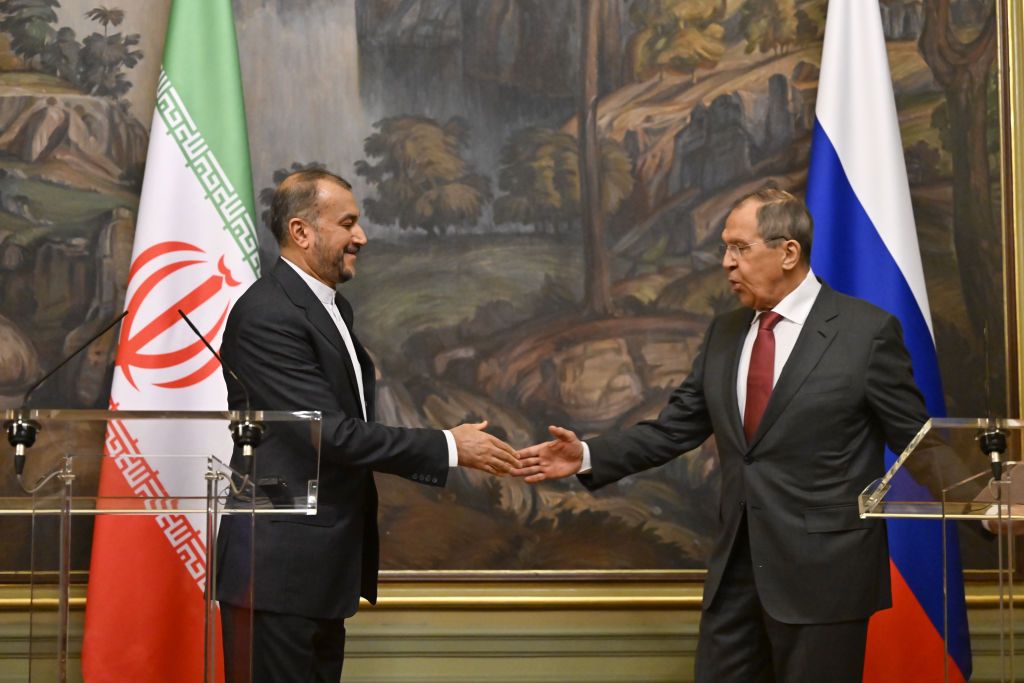ISW: Russia, Iran preparing to sign treaty to develop military-technological cooperation

Russia and Iran are preparing to sign a treaty to further develop military-technological cooperation, the U.S.-based think tank Institute for the Study of War (ISW) assessed in its latest report on Jan. 15.
According to the ISW, Moscow and Tehran will aim to strengthen bilateral military and technical cooperation through the establishment of a Grand Interstate Treaty, as Russia continues to seek extensive weaponry and supplies to fuel its ongoing invasion of Ukraine.
In separate phone calls on Monday, Russian Defense Minister Sergei Shoigu and his Iranian counterpart Minister Mohammad Reza Ashtiani touted their plan to advance the "fundamental principles of Russian-Iranian relations." While Russian Foreign Minister Sergei Lavrov spoke with Iranian Foreign Minister Hossein Amir Abdollahian about the specifics of the agreement, involving trade, economic development, transport, and logistics, according to a readout from Russia's Ministry of Defense.
The renewed talks of an interstate treaty come as Russia is reportedly planning to buy short-range ballistic missiles from Iran. Although U.S. officials said that a deal had not been completed, officials warned Russia could receive Iranian missiles in the spring of 2024.
No further details were provided as to the specifics of the planned Grand Interstate Treaty, and no timeframe has been set as to when a formal agreement may come into effect, the ISW reports.
Iran continues to serve as an instrumental supplier of weaponry for Russia’s full-scale invasion of Ukraine. Iran has provided Russia with thousands of Shahed kamikaze drones used in airstrikes against Ukraine, and has also made deals to purchase advanced Russian aircraft and helicopters.
Last month, Moscow and Tehran also signed a declaration on jointly combating Western sanctions imposed against the two regimes over their role in the war against Ukraine.
As Russia has become more isolated since the beginning of the full-scale invasion and has increasingly depleted its preexisting supplies of military equipment, it has turned to other international pariahs like North Korea and Iran to replenish its stocks.














